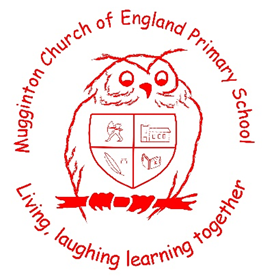
computing
Computing equips pupils to use computational thinking and creativity to become active, competent and responsible participants in a rich digital world. Our Computing curriculum provides opportunities for all pupils to become digitally literate, and to have the skills to express themselves and develop their ideas within a variety of contexts through digital technology.
Computing is the medium through which the world is accessed and life is lived, and is an integral part of all learning in 21st Century Britain. At Mugginton, Computing is implemented through discrete and cross-curricular teaching, ensuring that content is relevant and purposeful, with the desire to develop and foster a pupil’s love of the subject. Through practical and meaningful real-life contexts, pupils learn a variety of transferable skills and have the opportunity to continually practise, apply and build upon previous learning.
We want to empower our children to navigate the digital world with confidence, safety and creativity.
Through engaging teaching and learning methods, we ensure a balanced coverage of the three strands of Computing:
1) Computer science
2) Information technology
3) Digital literacy
whilst equipping children with fundamental technological skills including word processing, online research, presenting data, retrieving and manipulating digital content and creating programs. Pupils have the opportunity to explore and evaluate online digital content, so that they value online safety and show respect for themselves and others when communicating digitally. Through investigative, problem-solving experiences children build resilience and perseverance where are they challenged as critical-thinkers. Cross-curricular links motivate and support pupils to make connections across subject areas and develop an awareness of the multitude of uses for technology within their daily lives. Pupils are taught valuable technological skills that will empower them to become successful, independent life-long learners.
At Mugginton Primary School, we strive to deliver a high-quality Computing curriculum which allows our pupils to recognise the significance of digital technology in their everyday lives. We explicitly teach the skills and knowledge pupils need to become creative, digitally literate, computational thinkers.
We encourage curiosity about digital technology and encourage our pupils to ask questions about the digital systems around them. We explore how technology is used in the real world and how to use it in a safe and responsible way.
The teaching of Computing has been carefully considered to enable our pupils to become digital citizens in an increasingly technological society and in the digital community. We teach using the Teach Computing scheme. Our team has carefully worked to create a Progressive Skills Document where objectives for each year group are progressively mapped out to ensure our pupils are given the acquired skills and knowledge the further their education journey into KS3 and life beyond the classroom.
Within Computing, pupils will develop a deep understanding of key concepts and second order concepts. These key concepts have been carefully considered and identified as the core knowledge, skills and confidence to engage with technology required to successfully achieve in a digital world. The Key concepts are revisited and developed as the pupils move through the school to ensure the knowledge, skills and confidence to engage with technology are firmly embed within the long term memory. The expectation is that, by the end of Primary School, children will know and understand these key concepts and have the ability to use technology and understand its uses in readiness for KS3.
In addition to first order concepts, our team has identified subject specific second order concepts. These can be used across all aspects of the subject to organise the substantive knowledge and skills taught.
First order concepts:
Computing systems and networks: (systems, networks and how they are used, the internet, hardware and software)
Programming: (interpreting, creating and evaluating algorithms, programming to accomplish specific goals, detecting and correcting errors)
Data and information: (collecting, analysing, evaluating, presenting data and information)
Creating media: (design and development, communicating and collaborating online, evaluating online content, respectful and responsible communication, presenting, creating content)
As part of each key concept, children also explore and learn about:
The effective use of tools
The impact of technology
Safety and security
Second order concepts:
These can be used across all aspects of a subject to organise the substantive knowledge taught.
Responsibility: (being safe online, using social media responsibly and respectfully, privacy, cyberbullying)
Similarity and difference: (making comparisons, finding patterns, noting differences and drawing conclusions)
Cause and consequence: (inputs and outputs, programming)
Significance: (significant inventions, significant figures from the world of computing)
Chronology: (changes in technology over time, inventions, future technology)
Written and oral expression: (Using Computing terminology, using technology to support and improve communication, using technology to presenting and interpreting data, digital media)
By the end of the primary school education, pupils will:
Understand how to use algorithms to solve problems
Be able to use a computer programme to write code to perform a task
Understand different networks and how they communicate
Understand how to work safely and responsibly online, how to recognise and report security issues and concerns
Be able to explain the different hardware in computers and how they work together
Recognise the difference between right and wrong and understand consequences of their actions when using technology and communicating through digital platforms
Respect the feelings and opinions of others and how they express themselves creatively through technology
Understand and appreciate technological advances made historically within global communities and recognising the continuing digital development in Britain and the rest of the world
Our scheme of work has been designed as a spiral curriculum with the following key principles in mind: cyclical (pupils return to the same skills again and again during their time in Mugginton, increasing depth (each time a skill is revisited it is covered with greater complexity, prior knowledge (upon returning to a skill, prior knowledge is utilised so pupils can build upon previous foundations).
We hope that by providing our pupils with an exciting and progressive Computing curriculum, that addresses the challenges and opportunities offered by the technology rich world in which we live, they will be confident contributors to society as responsible digital citizens.
computing policy

Designated Safeguarding Lead
Mr J Green
Designated Safeguarding Lead: 1st cover
Monday, Tuesday: Mrs D Wallen; Wednesday - Friday: Mrs E Dennis
Designated Link Governor for Safeguarding
Mrs C Stroud
SENCO
Mrs E Dennis





